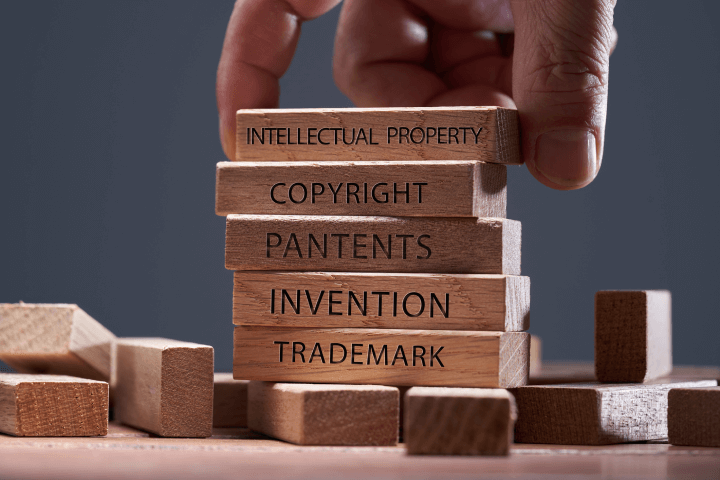Can AI Own Copyright? Recent Legal Developments Weigh In
AI | 12-09-2023 | By Robin Mitchell
As AI advances, it's being harnessed more than ever to produce artwork, articles, and even code. However, with these advancements come legal complexities. A pivotal ruling by the United States District Court for the District of Columbia has raised questions about the copyright status of AI-generated creations, with potential global implications. This decision, while specific to the US, could have ripple effects across the globe, influencing how other jurisdictions approach the issue.
What challenges does AI-generated work introduce with regard to copyright, could this spread to any and all AI-generated content, and could this be the start of the end for commercialised AI content?

What challenges does AI-generated work introduce with regard to copyright?
While copyright is almost universally hated by many online content creators, it has provided a safety net for creators of original content. Unlike patents, which can be extremely costly and time-consuming to file, copyright is free and instantly granted the moment a piece of original work is created. This copyright gives the author full control over their work, being able to license it for commercial gain.
However, who exactly is able to claim copyright over works has always been somewhat contested. For example, some years ago, a monkey got a hold of a digital camera and took some photos. According to some, the copyright owner of that content was the monkey, as it had taken the photos. However, lawmakers decided against this, as only a human can hold copyright (in this case, the human who owned the camera was the copyright holder).
Now that AI-generated content is on the rise, this same argument is being had, with some believing that an AI can hold copyright over its generated content. After extensive discussion, US courts have now ruled against AI being a copyright owner.
The UK government has also been proactive in addressing the challenges posed by AI in the realm of intellectual property. A recent call for views by the UK government delves into the intricacies of AI and copyright, seeking opinions from experts and stakeholders on how best to navigate this evolving landscape.
But, instead of the original designer of the AI being the copyright owner, it has also been decided that AI-generated artwork cannot hold any copyright whatsoever. This means that AI-generated artwork, in theory, can be copied and used by anyone without needing to pay licensing or royalties from the human responsible for instructing an AI to generate art.
Could this spread to other AI-generated works?
If only humans can claim copyright over works, or more specifically, over human-generated works, then there is a very real risk that AI-generated content, in general, cannot be protected as intellectual property. This could very well include articles, documents, code, and even videos as AI capabilities become more advanced.
However, as AI tools are becoming more popular in the field of engineering, even works such as AI-generated PCB layouts and antenna design could struggle to see protection. While a company may try to claim that their engineering staff have instructed to produce results, considering that artists cannot claim copyright over AI-generated images, the same rules may apply.
If such works cannot be protected via copyright, only patents and trade secrets will be able to defend designs from rapid reverse engineering. Engineers would also have to consider integrating more obfuscation so as to deter copying, and may even need to result in using advanced manufacturing techniques to outright make parts of designs inaccessible.
Is this the start of the end for AI-generated content?
While the new ruling by the US court doesn’t outright say that other forms of AI content can’t be copyrighted, it certainly suggests that those looking to profit from AI will see more struggles.
The domain of AI-generated news is particularly intriguing. On one hand, there are reputable platforms that leverage advanced AI tools, like ChatGPT, to produce insightful and well-researched articles. These platforms aim to use AI as a tool to enhance journalistic integrity and provide readers with valuable content. On the other hand, a surge of low-quality sites has emerged, primarily aiming to capitalise on the AI trend. These sites often produce vast amounts of content with the sole intent of boosting web traffic. Rather than offering fresh perspectives or in-depth analysis, they tend to regurgitate existing information, diluting the quality of online news. By overloading search terms, they can drive traffic away from more reputable sites that not only generate original content but question what is being reported.
If such sites that heavily rely on AI content cannot protect what they publish, it could quickly see a war of attrition whereby hundreds of cloned sites are produced to try and steal some portion of traffic away. In fact, websites that copy and paste this data don’t even need to cite where it comes from and can claim it as their own as content that has no protection has no licensing terms attached to it.
Should the new ruling extend to all AI-generated content, then it is likely that AI content will fall in popularity, as those generating such content will struggle to commercialise it. Instead, it will likely fuel the “free-space” of content creators who don’t actively capitalise on their works.
Could this new ruling affect engineers and the designs created using AI? Probably not. Could it eventually evolve into something troublesome? Possibly. But, for the time being, engineers can continue to use AI tools to develop new products without having to worry about copyright and licensing rules.

